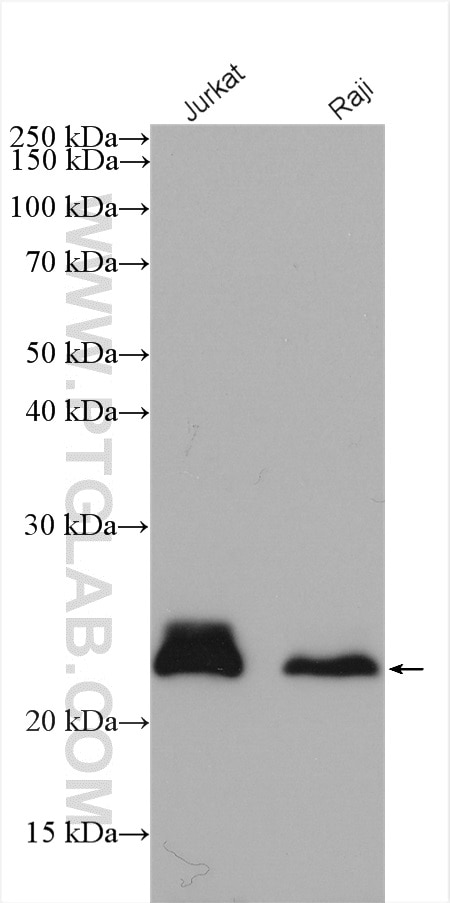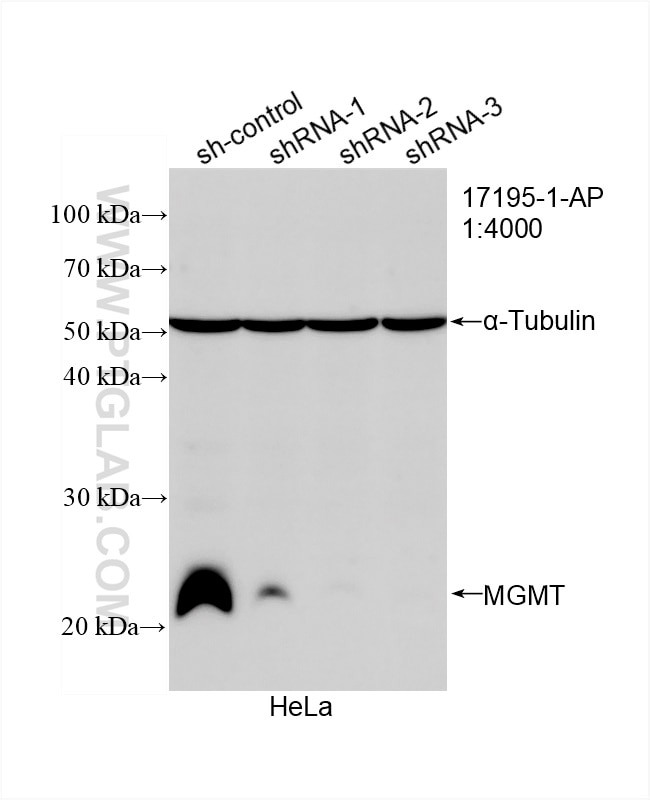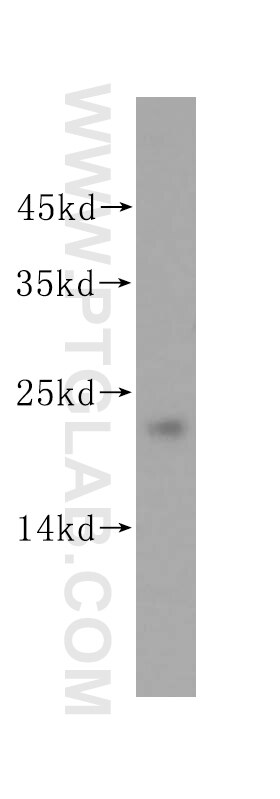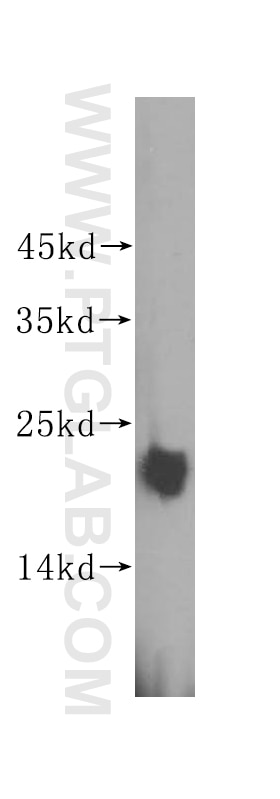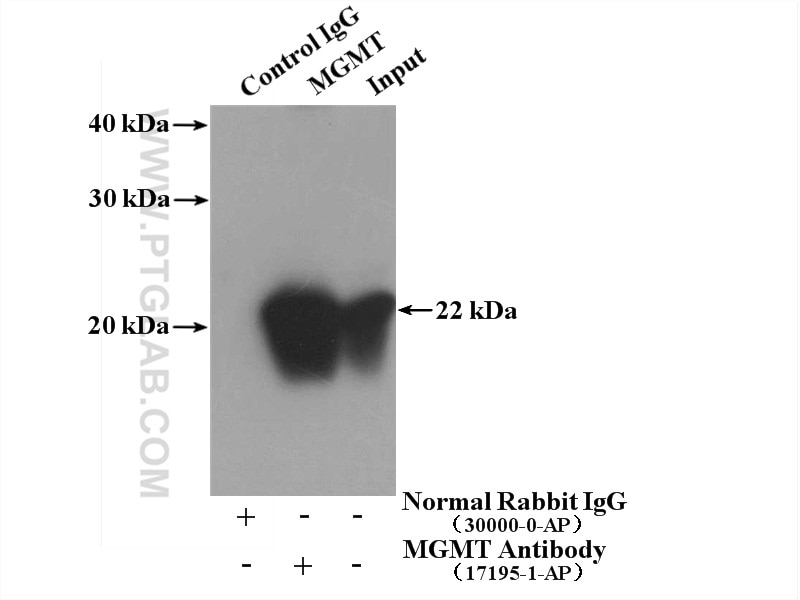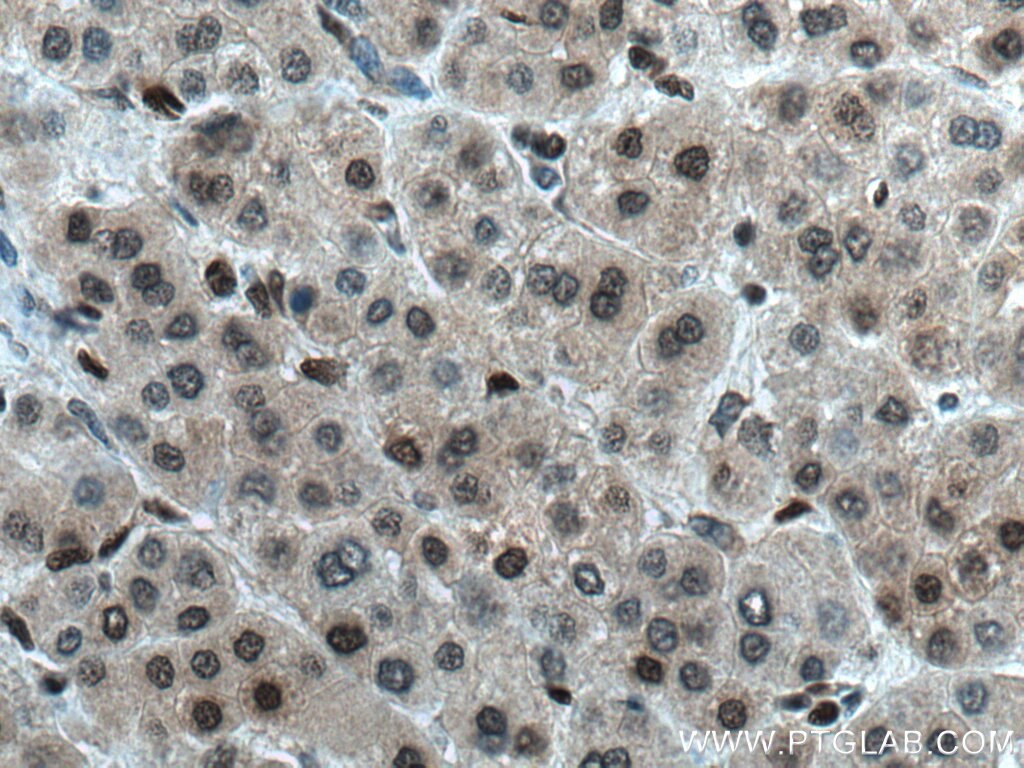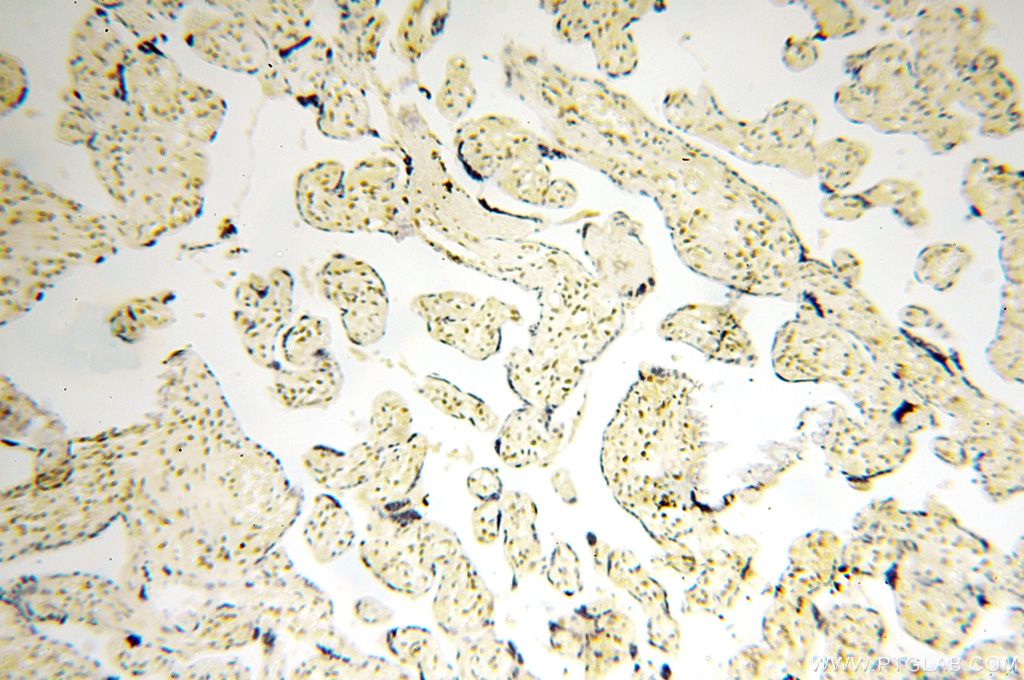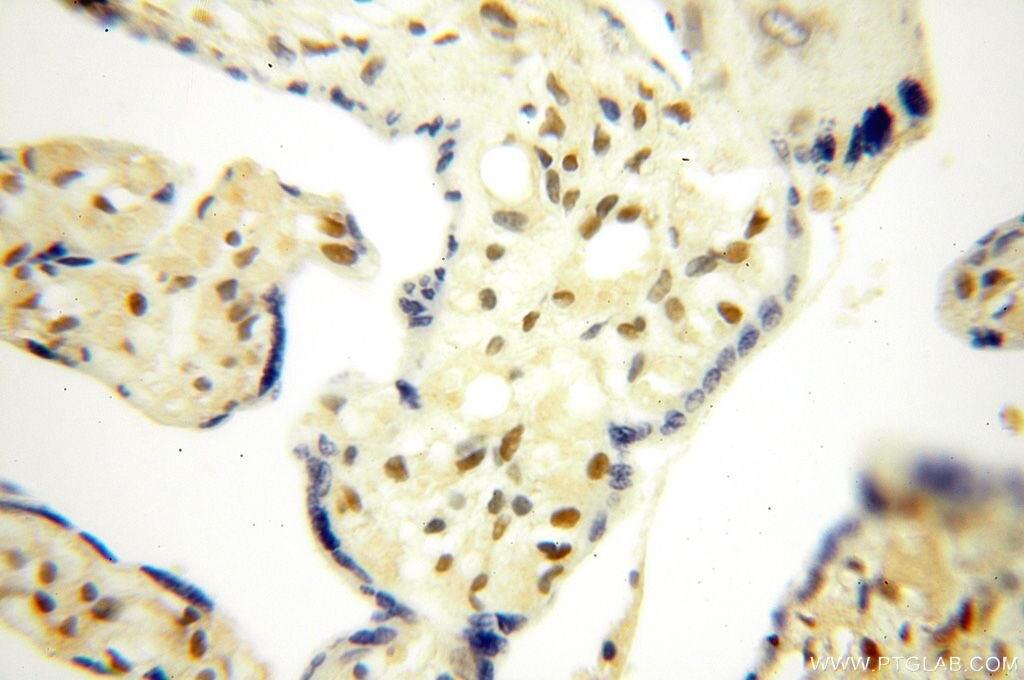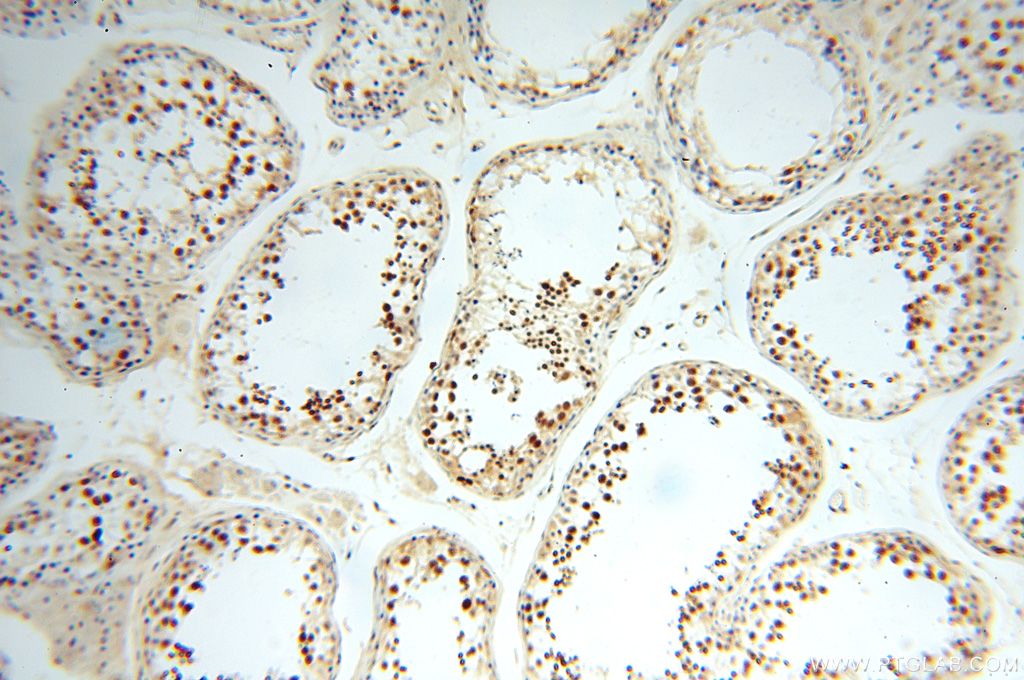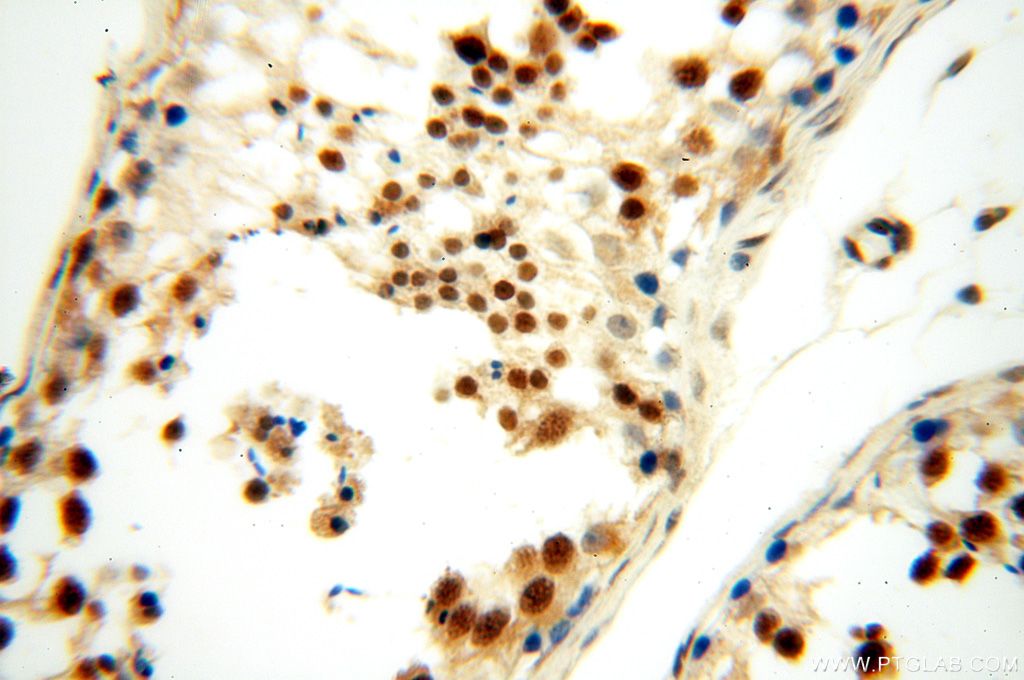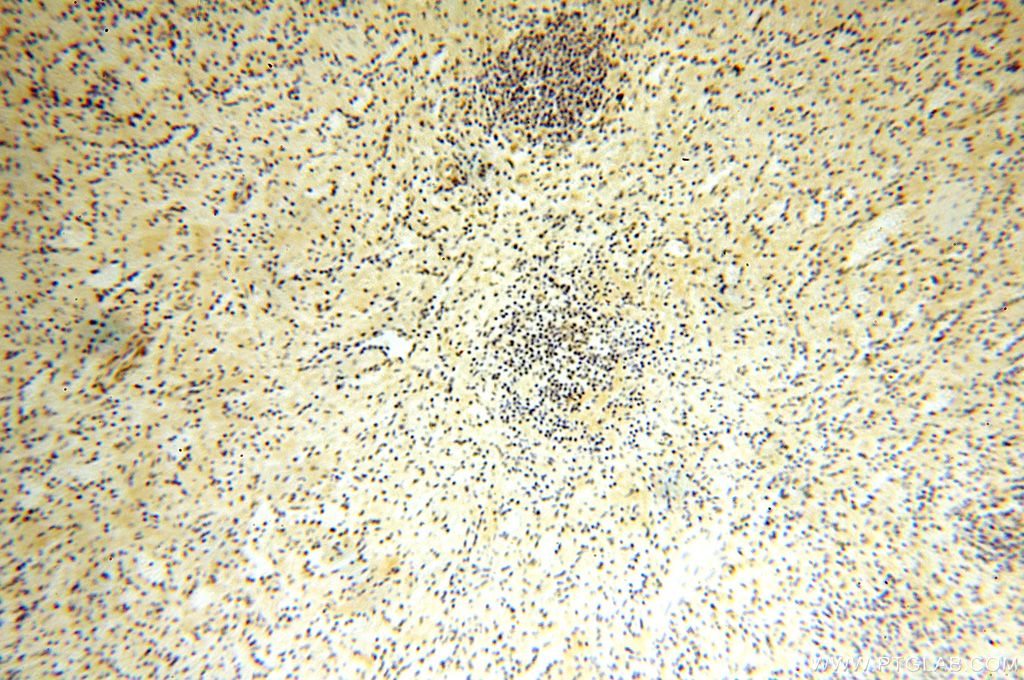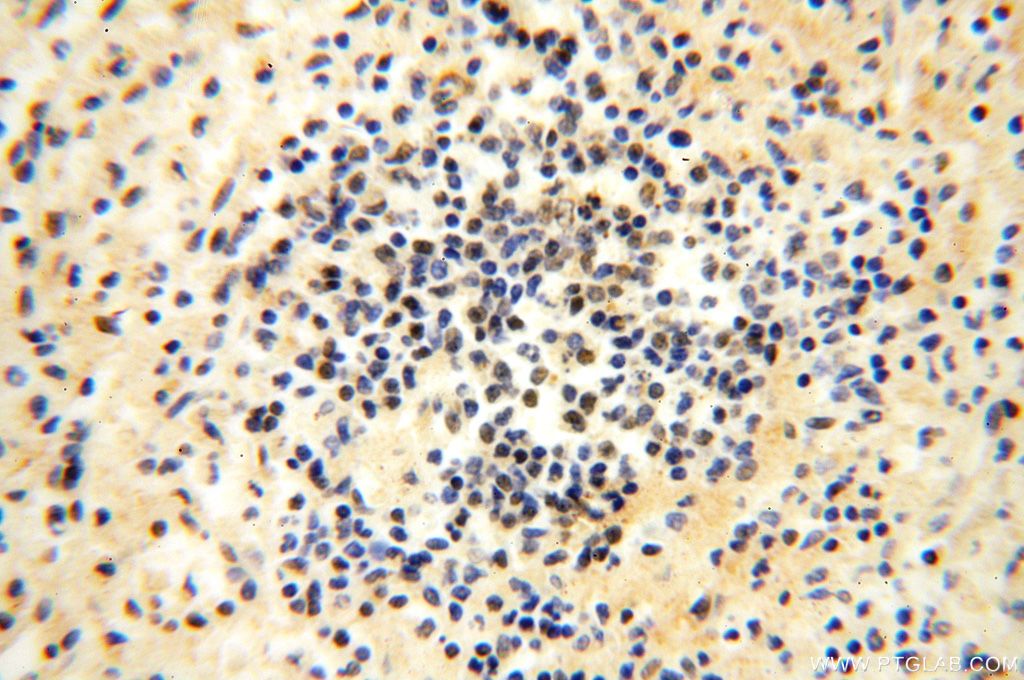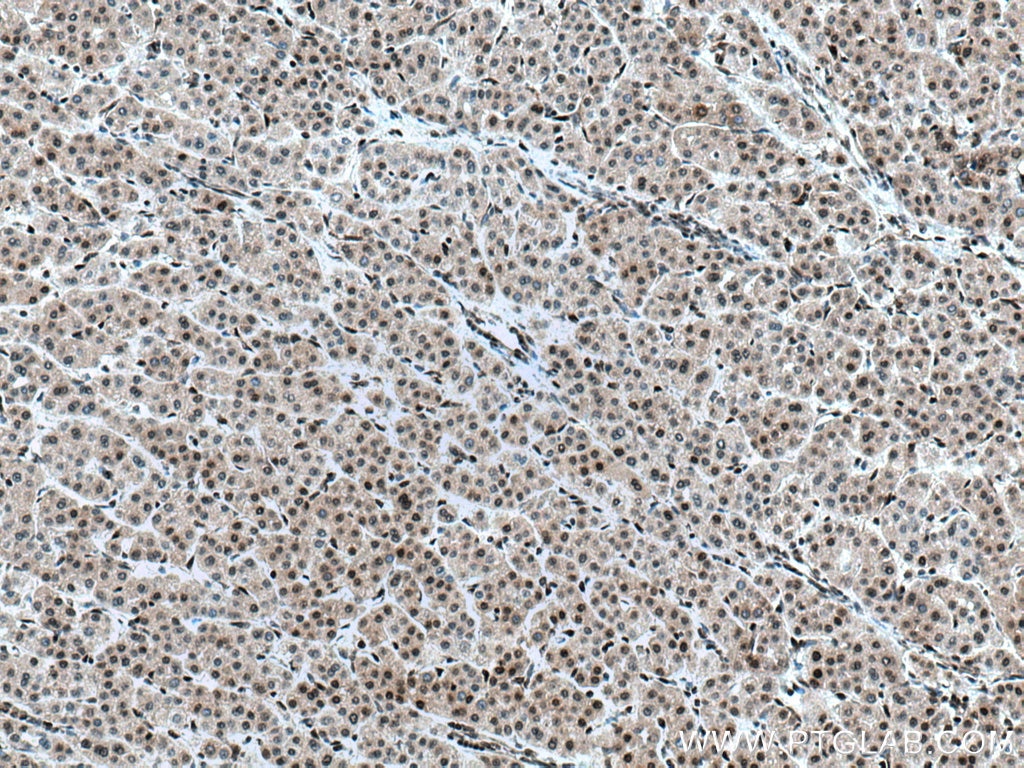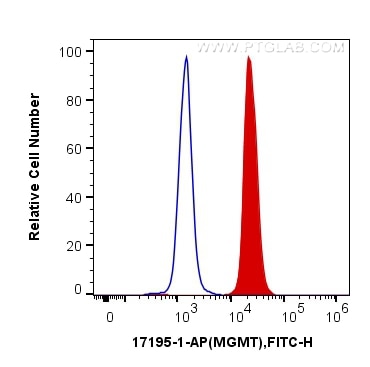- Featured Product
- KD/KO Validated
MGMT Polyklonaler Antikörper
MGMT Polyklonal Antikörper für WB, IHC, FC (Intra), IP, ELISA
Wirt / Isotyp
Kaninchen / IgG
Getestete Reaktivität
human und mehr (1)
Anwendung
WB, IHC, IF, FC (Intra), IP, CoIP, ELISA
Konjugation
Unkonjugiert
Kat-Nr. : 17195-1-AP
Synonyme
Geprüfte Anwendungen
| Erfolgreiche Detektion in WB | Jurkat-Zellen, HeLa-Zellen, MCF-7-Zellen, Raji-Zellen |
| Erfolgreiche IP | Jurkat-Zellen |
| Erfolgreiche Detektion in IHC | humanes Leberkarzinomgewebe, humanes Plazenta-Gewebe, humanes Milzgewebe, humanes Hodengewebe Hinweis: Antigendemaskierung mit TE-Puffer pH 9,0 empfohlen. (*) Wahlweise kann die Antigendemaskierung auch mit Citratpuffer pH 6,0 erfolgen. |
| Erfolgreiche Detektion in FC (Intra) | Jurkat-Zellen |
Empfohlene Verdünnung
| Anwendung | Verdünnung |
|---|---|
| Western Blot (WB) | WB : 1:1000-1:6000 |
| Immunpräzipitation (IP) | IP : 0.5-4.0 ug for 1.0-3.0 mg of total protein lysate |
| Immunhistochemie (IHC) | IHC : 1:50-1:500 |
| Durchflusszytometrie (FC) (INTRA) | FC (INTRA) : 0.20 ug per 10^6 cells in a 100 µl suspension |
| It is recommended that this reagent should be titrated in each testing system to obtain optimal results. | |
| Sample-dependent, check data in validation data gallery | |
Veröffentlichte Anwendungen
| KD/KO | See 1 publications below |
| WB | See 18 publications below |
| IHC | See 4 publications below |
| IF | See 1 publications below |
| CoIP | See 1 publications below |
Produktinformation
17195-1-AP bindet in WB, IHC, IF, FC (Intra), IP, CoIP, ELISA MGMT und zeigt Reaktivität mit human
| Getestete Reaktivität | human |
| In Publikationen genannte Reaktivität | human, Maus |
| Wirt / Isotyp | Kaninchen / IgG |
| Klonalität | Polyklonal |
| Typ | Antikörper |
| Immunogen | MGMT fusion protein Ag9996 |
| Vollständiger Name | O-6-methylguanine-DNA methyltransferase |
| Berechnetes Molekulargewicht | 22 kDa |
| Beobachtetes Molekulargewicht | 22 kDa |
| GenBank-Zugangsnummer | BC000824 |
| Gene symbol | MGMT |
| Gene ID (NCBI) | 4255 |
| Konjugation | Unkonjugiert |
| Form | Liquid |
| Reinigungsmethode | Antigen-Affinitätsreinigung |
| Lagerungspuffer | PBS with 0.02% sodium azide and 50% glycerol |
| Lagerungsbedingungen | Bei -20°C lagern. Nach dem Versand ein Jahr lang stabil Aliquotieren ist bei -20oC Lagerung nicht notwendig. 20ul Größen enthalten 0,1% BSA. |
Hintergrundinformationen
MGMT is the primary vehicle for cellular removal of alkyl lesions from the O-6 position of guanine and the O-4 position of thymine. While key to the maintenance of genomic integrity, MGMT also removes damage induced by alkylating chemotherapies, inhibiting the efficacy of cancer treatment [PMID:23065697].MGMT is the primary mechanism for the removal of alkylation damage from the O-6 position of guanine [PMID: 17482892]. The O-6 position of guanine is one of several positions in DNA bases to which alkyl groups are attached in SN1 alkylation reactions, and this repair has been well-characterized in mammalian cells and via MGMT homologs in bacteria and Archaea.[PMID: 10767620]
Protokolle
| PRODUKTSPEZIFISCHE PROTOKOLLE | |
|---|---|
| WB protocol for MGMT antibody 17195-1-AP | Protokoll herunterladen |
| IHC protocol for MGMT antibody 17195-1-AP | Protokoll herunterladenl |
| IP protocol for MGMT antibody 17195-1-AP | Protokoll herunterladen |
| STANDARD-PROTOKOLLE | |
|---|---|
| Klicken Sie hier, um unsere Standardprotokolle anzuzeigen |
Publikationen
| Species | Application | Title |
|---|---|---|
Cell Res DNA damage triggers tubular endoplasmic reticulum extension to promote apoptosis by facilitating ER-mitochondria signaling. | ||
Nucleic Acids Res KDM6B promotes PARthanatos via suppression of O6-methylguanine DNA methyltransferase repair and sustained checkpoint response. | ||
Clin Transl Med LncRNA BC promotes lung adenocarcinoma progression by modulating IMPAD1 alternative splicing | ||
J Pharm Anal MGMT activated by Wnt pathway promotes cisplatin tolerance through inducing slow-cycling cells and nonhomologous end joining in colorectal cancer
| ||
Oncogene GBP3 promotes glioblastoma resistance to temozolomide by enhancing DNA damage repair. | ||
Oncogenesis GSK3β palmitoylation mediated by ZDHHC4 promotes tumorigenicity of glioblastoma stem cells in temozolomide-resistant glioblastoma through the EZH2-STAT3 axis. |
